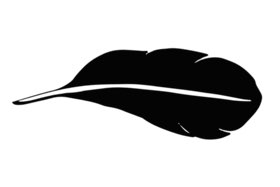Birds are trying to reinvent your heart.
They have braided strands of kelp around a clam shell, gritty and dank with sand. As it dries, salt crystallizes and rimes the seams. It is a captured moment of the sea, a fist-sized prayer to time and tide. If you lift it to your ear, it sighs with the voice of the cliffs; to your mouth, and the taste of ocean may numb your lips like the tears of a thousand lovers.
But it is not a heart.
A heart is a carbuncle knot, a cancerous mass of grief around which your ribs have seized. A heart is a siphon to dread, to guilt, to every spear and lance the world would pin you by. A heart is a wound.
They try nonetheless, wheeling and screaming the rage that stops your tongue. Gulls rip the silvery flesh from sardines and weave their pliant bones into a net. Shy plovers fill it with seeds stripped from the ferns of the cliffs, and it rattles in your ear like the shaking of reeds in the wind. When you clench your fist, it crumbles as easy as sand.
A heart is fragile.

A heart might be coaxed open by a penitent who comes to you from the shattered cliff-top villages and lays herself at your feet, her clothes still heavy with the soot of your wrath. It might beat faster when you raise her up, though she flinches at your divinity, her skin like the rasp of dune grass against your hands, her eyes as trusting as a seal’s. When she sleeps in the shade of your cliffs as the moon fades and is reborn, and again, and again—a heart might be laid bare by the way the salt waves roughen her feet as she greets you in the spilled fire of dawn.
You show it to her, then. Take her hand in yours. Guide her beneath the water to caves that only exist in the shuddering moments when low tide aches to rise again. Pearls scatter beneath your feet, your backs, the tribute of a thousand thousand oysters spread in an irreverent iridescent bed.
And as you lie there, replete, salt creeping ever nearer to your toes, she pulls her conch-carved blade from the tangled discards of her garments and slips it sweetly into your breast. Her eyes are still soft as moonlight. Her hands tremble.
You kill her, of course. Mortals are even more fragile than hearts.

Pelicans bring you strange crab casings filled with shredded leaves of dulse and sargassum. A cormorant drops the dead spines of an urchin at your feet, flesh pecked away and replaced with the scraggling grey feathers of childhood. The auks and puffins have gathered a dozen perfect quartz pebbles and wrapped them in the glistening flesh of a jellyfish, bulbous as a sea cucumber trembling in the sun.
You crush them all. Beneath your feet, between your hands, with the ice of your breath and the stone of your teeth. They are all wrong. They cannot fix you.
The screaming gulf of your fury has ripped a storm from the heavens. It drives the waves against the tide, tears forests from the ocean floor and churns the air into an incoherent mass of feathers.
You pluck a petrel from the sky. Consider it. Inhale its frantic rolling eye, the oil of its back, the fluttering heaving bewilderment of its breast. The thudding of its tiny, tiny heart.
It passes through your lips as easy as the sea cuts down a cliff. You catch another. Another. Another. They pulse beneath your ribcage like sunlight through ten feet of water, weak as hatchlings straining against the shell.
Yes. It is a start.
Your gaze turns to the clifftops, where the first smoke of morning has begun to stain your sky the grotesque yellow-grey of sickened cod-flesh. To the sticky roar of mortal blood pounding through infidel veins.
You have become distracted. You have allowed yourself to be appeased, by soft skin and softer touch.
No more.
An army of curved beaks and fierce claws at your back, the cree of osprey and albatross ringing through the air, you press your fingers into the cliff face and begin the climb.
